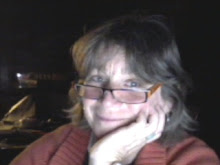
Here is another anti-war book, seems my mind is wandering that way. This one is definitely in the quirky category.
When I first saw Manneken Pis, I really could not believe the manuscript made it past Marketing. Even though the story is based on a famous statue in Belgium, it is still all about war and... a boy peeing. The cover is a boy peeing. The punchline is a boy peeing. Now, imagine the sales chart. Also imagine reading this to a class of 2nd graders. My favorite response, amid squeals and laughter, was a shocked, very serious "That's in-proprate." It might be a better story to read one-on-one.
But it is worth reading and discussing. This book is an allegory of peacemaking. Radunsky's childlike, bold paintings illustrate the conflict and consequences of war from the point of view of a small boy. Then the boy needs to pee and this simple act brings both sides together in laughter.
End of war.
I wish it were so simple!
- Manneken Pis - A Simple Story of a Boy Who Peed on a War by VladimirRadunsky
- Atheneum/Anne Schwartz Books
- ISBN-10: 0689831935
- ISBN-13: 978-0689831935



